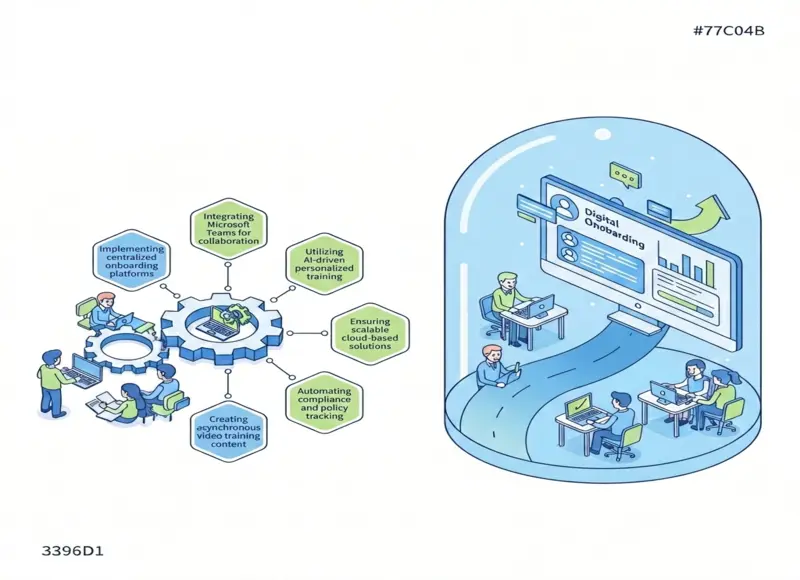Table of Contents
Learn SEO essentials for real estate websites to boost visibility and reach more buyers. From keyword research to technical SEO, this guide covers everything agents need to optimize their listings and attract potential clients.

Key Takeaways
Is your real estate website on page five of Google's listings? Don't get too worked up over it; you're not alone in feeling this way. Most agents face the problem of their online presence when such a competitive marketplace is involved. That's exactly where SEO for your real estate listings enters. Know the techniques of SEO and attract more potential buyers to make sure your listings stand out. Lock and key to unlocking all the secrets of effective real estate SEO? Alright, let's get started!
Understanding the Basics of SEO
First, let us find out what SEO really is.
What is SEO and Why It Matters for Real Estate
Well, what is that magic wand called SEO? Search Engine Optimization is the bundle of strategies that drives your real estate listings and site to that higher rank on the Google search engines. Just imagine that being the ultimate visitor booster for your digital presence. Just like a good suit or firm handshake was worth real estate some time back, today, having a good SEO strategy is the real estate for business. It's cutthroat competition, and buyers are just a click away from choosing another option.
Why does it matter in real estate? Simply put, imagine that those accurately composed property listings are diamonds. Without SEO, these diamonds would be hidden in some dark cave. But with good SEO, a spotlight shines directly onto them, making sure customers see your diamond's sparkle first. Higher search rankings mean more clicks, more inquiries, and, eventually, more closings. It's the assurance that your properties aren't just viewed but shine on top.
Key SEO Terms and Concepts Realtors Should Know
Diving into SEO can be like a new language sometimes. Do not worry; here's the basic vocabulary for you.
- Keywords: These are the words and phrases that an intending buyer would "search for" in a search engine. In real estate terms, these could be "3-bedroom houses in Austin" or "luxury apartments in Miami."
- On-page SEO: This is an optimization act that optimizes individual pages to rank for keywords. Major areas include content quality, alt images, and descriptions.
- Backlinks: The great advantage of backlinks is that they are like digital votes of confidence. When a web page receives a backlink, the search engine will know that your site is trustworthy and authoritative.
- Local SEO: It optimizes your online presence to attract local clients and dominate local search results. Most importantly, it is more important for a realtor who specializes in a particular neighborhood or city.
- Technical SEO: Technical SEO is basically improving the backend site elements to enhance the search engine crawling and indexing. This involves site speed, mobile-friendliness, and a secure connection, HTTPS.
The next section will go into greater detail about keywords and keyword research.
Keyword Research for Real Estate Listings
In the previous section, we discussed keywords. However, how does one discover them? This process is termed keyword research.
Identifying Relevant Keywords for Local Searches
Keyword research is like walking in the shoes of your potential clients. What phrases do they type in for hunting properties? For real estate, let's not forget the local keywords. This will center on specific areas, neighborhoods, school districts, or even landmarks.
For example, if you sell houses in Nashville, words such as "Nashville real estate," "houses near Vanderbilt University," or "downtown Nashville apartments" are goldmines. You want to write your content so it directly speaks to those people looking for a property in those exact areas.
Tools and Techniques for Effective Keyword Research
Once you’ve brainstormed some potential keywords, it’s time to dig deeper with the help of some trusty keyword research tools. Here are a few favorite SEO software tools among real estate pros:
- Google Keyword Planner: This is a must-use for finding the right keywords and their search volumes.
- SEMrush: Provides insights on competitors and identifies a new pool of keyword opportunities.
- Ahrefs: This is not only a keyword search but also the capability to track the performance of a website and find backlink opportunities for it.
With these tools, monitor the performance of keywords over time so as to make necessary adjustments to remain competitive and visible in search results.
Incorporating Long-tail Keywords for Better Reach
Keywords that are short, like "real estate," of course, are very competitive, but long-tail keywords might be a way to bring more targeted traffic. Long-tail keywords are longer and more specific phrases: think "affordable family homes near Central Park" or "luxury condos with a city view in San Francisco."
Some of these keywords probably will have lower volumes, but they tend to convert better because they are mostly hits on people who mean to do something. For instance if your keyword is "pet friendly townhouses in Miami Beach," then that's a sure need, and targeting that kind of need has you getting closer to conversion.
Make a good foundation for success in the world of listings by understanding the basics of SEO, the right keywords, and the correct use of the right tools. Open the doors really wide to would-be clients!
On-Page SEO Techniques
Indeed, on-page SEO will be your best friend if you want to shine light on your real estate listings. Let's dig a little deeper as to how we can craft intriguing content and make it not just eye-grabbing but also search engine algorithm-friendly.
Crafting Engaging and Optimized Property Descriptions
A description of a property can be a real chore, but this is the point of gaining interest from interested buyers. View your description as a little mini-story that wraps itself around your property. Focus on the best aspects of the property, such as that quirky rooftop terrace or that cozy reading nook near the window. Write with good vocabulary and real estate SEO keywords to paint pictures in the minds of readers.
Remember to include location-specific terms—mention the thriving local farmer’s market if it’s nearby! But watch out for keyword stuffing; less is often more in maintaining natural readability.
Importance of Title Tags and Meta Descriptions
Title tags and meta descriptions sound kind of technical, but they are pretty central to your on-page SEO strategy. The title tag is essentially the first piece of information a potential home buyer will see in search results, so try to make it clear and catchy; try something like "Charming three-bedroom family home near Central Park." The meta description should be a brief enticing summary that draws clicks. It replies to nearly every question a buyer can ask. All these parameters increase click-throughs and make your listings appear to be on the top of the SERP.
Utilizing Internal Linking to Boost Visibility
Internal linking is one of those smart strategies that benefits both search engines and users. Similarly, while it may add extra property listings on your site, having your listing link to related blog posts or neighborhood guides should improve the user experience and keep visitors around your site longer. This smart linking pattern will also communicate the message to the search engine that your site is rich and relevant, which, in turn, should bump your pages up within the search rankings.
Off-Page SEO Strategies
Off-page SEO does not mean getting off the page and out of the SEO game. Off-page SEO techniques are used to enhance your authority and trustworthiness in the expansive real estate landscape.
Building Quality Backlinks for Real Estate Websites
Fundamentally, backlinks are a vote of confidence in your website. Getting backlinks from other good sites, such as local real estate blogs or business directories, to link back to your content can make the site seem much more legitimate in the eyes of search engines. Emphasize quality over quantity; several high-quality backlinks might be better than a thousand low-quality ones.
Leveraging Social Media to Enhance SEO
Social media is not all selfies and cat videos. It's also a superpower tool for search engine optimization. You're posting your listings on Facebook, Instagram, and Twitter so more people are seeing them. The more eyeballs it gets, the probability that your content is going to be shared rises high. Engage with followers; be interactive for instance by responding to comments and asking for opinions. The higher the interaction your posts have, the more probable they are to gain momentum and increase SEO performance.
Establishing a Strong Online Reputation
It's like pure gold, pure gold: the reputation of a real estate business. Suggestion: it should be encouraged to comment on well-satisfied clients on Google Business Profile and Yelp so that more new customers flow in and add to the fact that your business of real estate is trustworthy and further provides proof to search engines.
Vigilance is necessary while managing your online presence: always reply politely to the negative comments and interact with the public in a positive manner so that you maintain good community relations.
The final aspect is the technical SEO strategy that you need to know. And that will be discussed in the next part.
Technical SEO for Real Estate Websites
Here's how to fine-tune your technical SEO:
Ensuring Mobile-Friendliness and Fast Load Times
As more and more people view properties on their smartphones, ensuring that your website is mobile-friendly is not a nice to have; it's a must. In fact, Google will actually rank mobile-friendly sites higher. To maximize the opportunity, test how your site looks and works on different devices, and use tools like Google's Mobile-Friendly Test to find issues.
Loading time is as important; no one enjoys waiting for pages that take forever to load. A faster website improves the experience of a user and minimizes the bounce rate. Tools such as Google PageSpeed Insights are useful in indicating what areas are slowing your speed down, such as big images or unoptimized code. Compress your images and allow browser caching to improve the loading time.
Structuring Your Website for Search Engine Crawlers
An organized house is better structured than a website: a much more accessible place for crawlers to understand and index the pages. You start with a clean and logical URL structure, so it already lets the crawler know what one's talking about on the page. Add keywords concerning real estate for a high chance of a view.
Create a sitemap to allow the web crawler to indulge in each area of your website. Make navigation intuitive, so that both the user and search engines can quickly and easily identify which pieces of information are most relevant. Once it's well structured, it will improve SEO but, at the same time, it will aid the user experience which keeps an interested buyer.
Importance of Secure Websites (HTTPS)
Security is not just a form of data protection but also a double role of a trust signal to your visitors and to the search engines. Google prefers secure sites, meaning that an HTTPS site gives you a little ranking boost. Secure your site using an SSL certificate and secure your user's data.
If you collect sensitive information on your site, you secure it so that you would not only meet Google's preference but also win the trust of your visitors.
It is very important to get the website good enough technically in the real estate domain so that it can achieve improvement in search rankings and better attraction of potential buyers.
Conclusion
Mastering SEO in your listings doesn't have to be a nightmare. If you get it right and stay consistent, do help drive your online presence dramatically as well as reach those potential buyers. This can be done by concentrating on the use of relevant keywords and by optimizing website structures, content creation, and all these surrounded by proper local SEO so a connection can be established with buyers in your community. Becoming an SEO-savvy real estate professional is easy-to-follow from these tips!








